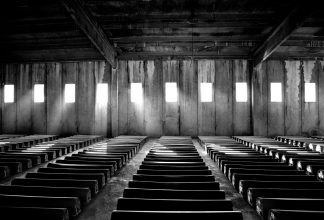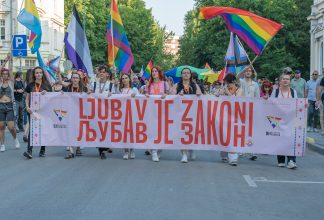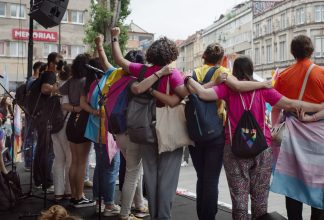Ethnic Tensions Escalate in Macedonia
Last Saturday, someone tried to burn down the bridge over the river Vardar in Macedonia’s capital Skopje. The bridge is the fastest way for the mainly ethnic Albanian population in the nearby village to get to the city.
The relationship between the two largest ethnic groups in Macedonia, Albanians and Macedonians, has since the armed conflict in 2001 in many ways reminded of the old wooden bridge: Not good, not quite stable – but functioning. After several clashes in recent times, however, the relationship between the two communities deteriorated.
Ethnic tensions have escalated since 28 February this year, when an ethnic-Macedonian police officer out of service shot two young ethnic Albanians, Imran Mehmet and Besnik Shehapi, in the town of Gostivar. The policeman was arrested but the police claimed, contrary to the eyewitnesses to the incident, he opened fire in self defense after being attacked by a gang. The incident is being investigated. The police has reported more than 30 ethnically motivated attacks since. To date, more than 40 people have been injured in what seems like an endless cycle of revenge attacks.
Both ethnic Macedonians and ethnic Albanians are victims and perpetrators in these conflicts. The vast majority of offenders have not yet been arrested. Those who were taken by police are young and they have carefully planned their attacks. Despite repeated calls by government representatives to stop the violence, both sides continues with violent attacks. Macedonian media have even stopped reporting the victims’ identities in order to prevent retaliation.
Although some suspected perpetrators have been arrested, it is important that, as a Civil Rights Defenders said in a press release last Saturday, the Macedonian authorities ensure that all perpetrators are arrested and brought to justice. The authorities must take all necessary measures to protect human life, health and property against attacks. Justice must then be allowed to run its course, free from political influence and blind to ethnicity.
In the sensitive situation prevailing in Macedonia, it is important that respect for human rights slowly will be rebuilt. The Macedonian civil society, with independent human rights organisations in the lead, is a key actor in this work. Unfortunately, the country’s civil society is very weak, and international aid agencies, including Swedish Sida, has more or less left Macedonia.
The Macedonian civil society is in need of international support in order to be a conflict prevention force of Macedonia. Sweden could, in light of its long involvement in Macedonia and the Western Balkans, be a driving force both within and outside the EU. But the situation requires immediate attention and we must act now, before all the bridges have been burned.


